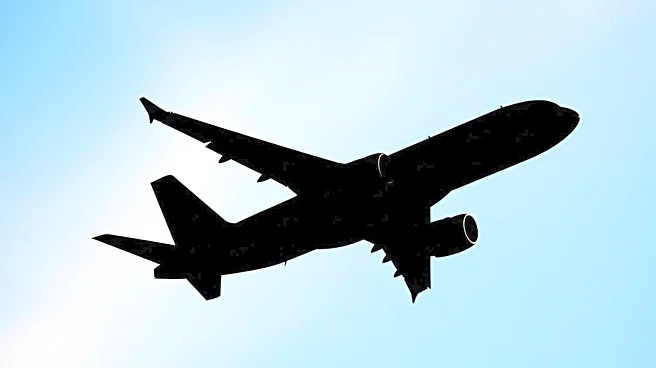What's Happening?
United Airlines CEO Scott Kirby has declared the ultra-discount airline model, which Spirit Airlines pioneered, as effectively dead. Kirby's comments were made during the US Chamber of Commerce Global Aviation Summit, where he criticized the business model of ultra-low-cost carriers (ULCCs) like Spirit and Frontier Airlines. Spirit Airlines, which recently filed for bankruptcy restructuring, has been facing financial difficulties due to declining demand and an oversupply of discount seats. In response, Spirit is revamping its business strategy by introducing premium seating options and eliminating some restrictive consumer policies. This shift aims to attract higher-paying passengers and improve customer satisfaction.
Why It's Important?
The shift away from the ultra-discount model marks a significant change in the airline industry, particularly for carriers like Spirit that have relied heavily on low base fares and additional fees. This transformation could impact the competitive landscape, as traditional airlines like United, American, and Delta have already begun offering basic economy tickets to capture budget-conscious travelers. The move by Spirit to enhance its offerings may lead to increased competition among airlines to provide better travel experiences, potentially benefiting consumers with more choices and improved services. However, it also poses challenges for ULCCs to balance cost efficiency with customer satisfaction.
What's Next?
Spirit Airlines plans to restructure its network and increase connecting flights as part of its new strategy. The airline's focus on premium seating and improved policies may lead to further adjustments in its operations and marketing efforts. Industry analysts will be watching closely to see how Spirit's changes affect its financial performance and customer loyalty. Additionally, other ULCCs may follow suit, leading to broader shifts in the industry as airlines seek to adapt to changing consumer preferences and economic conditions.
Beyond the Headlines
The decline of the ultra-discount model raises questions about the sustainability of low-cost travel in the current economic climate. As airlines adjust their strategies, there may be implications for labor practices, pricing structures, and regulatory considerations. The evolution of airline business models could also influence broader trends in travel and tourism, as consumers increasingly prioritize comfort and convenience over cost.











